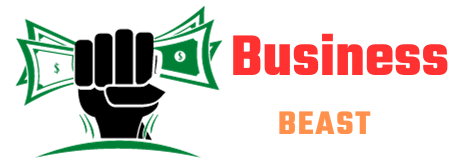A debt consolidation loan makes sense for individuals who desire to consolidate credit card debt. Although favorable conditions are not always guaranteed, the finest debt consolidation loans offer flexible payment schedules together with low-interest rates and origination costs. The type of your debts and your ability to get a low-interest rate, which is mostly determined by your credit score, will determine whether or not debt consolidation is a viable idea. The type of your debts and your ability to get a low-interest rate, which is mostly determined by your credit score, will determine whether or not debt consolidation is a viable idea.
What Is Debt Consolidation?
You are able to pay off several bills through debt consolidation including credit card debt, personal loans, and medical debt, by combining them into a single new loan. It seeks to streamline repayment procedures and, if possible, lower interest rates on outstanding balances. If you can get a cheaper interest rate, consolidating your debt may end up saving you money in the long term. It’s crucial to keep in mind that debt consolidation carries some risks and may not always result in reduced interest rates.
Read also: Kisan Rin Portal
How Does Debt Consolidation Work?
Let’s explore debt consolidation’s inner workings in more detail now that we have a general understanding of what it is:
- Assess your debt: Counting all of your outstanding bills is the first step in the procedure. This includes unpaid credit card balances, personal loans, medical expenses, and other unsecured debts.
- Apply for the consolidation loan: You’ll need to submit an application for a loan or credit card once you’ve determined which kind of consolidation is best for your financial condition. The lender’s requirements, your credit score, and your income all play a role in approval.
- Repay your debts: After receiving approval, pay off your current bills using the money from your debt consolidation loan or credit card. By using this technique, borrowers are only required to manage one loan as opposed to several loans.
- Make regular payments: Once you have consolidated your debt, you will only need to make one monthly payment. For your financial condition to get better, it is imperative that you make these payments on time and in full.
Types Of Debt Consolidation
You must choose how you wish to consolidate your debt once you have a clear view of it. There are various options available, including:
- Personal Loan: Whether it’s a bank, credit union, or internet lender, you can apply for a personal loan. If accepted, you can pay off your current debts with the loan’s earnings, leaving only one loan for you to repay. Fixed interest rates and monthly payments are customary for personal loans.
- Home Equity Loan or Home Equity Line of Credit (HELOC): You can utilize a home equity loan, also known as a HELOC, to combine your debts if you own a home and have enough equity in it. Because your property is the security for these loans, the interest rates are frequently lower. If you don’t make payments, they also endanger your home.
- Balance Transfer Credit Card: Transferring your high-interest credit card debt to a new card with a lower introductory Annual Percentage Rate (APR) is an additional choice. This strategy might work, but it’s crucial to settle the account before the promotional period expires because the interest rate might jump significantly after that.
Pros and Cons Of Debt Consolidation
Debt consolidation may occur through a loan, a balance transfer credit card, a student loan refinancing, a home equity loan, or a HELOC. Each approach has advantages and disadvantages.
Pros
- Simplified debt repayment: You can pay one debt consolidation loan once a month in lieu of making separate payments on various credit cards on various due dates.
- Higher credit score: Consistently paying off debt could lessen your credit utilization percentage, which could raise your credit score. Your credit history can also be improved by making on-time payments.
- Lower interest rate: Long-term savings can be achieved by combining several loans with interest rates in the double digits into one with a rate under 10%.
Cons
- Collateral is needed for the most competitive rate products: Your home must be pledged as security for home equity loans and HELOCs. If a debt secured by home equity is not repaid, the property may be seized.
- Upfront costs: High fees associated with debt consolidation may lower the overall loan value and your savings potential.
- Higher interest rates: Although it’s ideal, a lower interest rate isn’t always feasible. A debt consolidation loan with a longer term and a similar or even higher interest rate can be approved by the lender. Over time, you would pay more rather than save money.
- It’s easier to take on more debt: You can free up your lines of credit by combining your debt balances into one new loan. If you don’t use your lines of credit wisely, you might be tempted to use them to charge more on your credit cards.
Conclusion
Debt consolidation may be a smart move if you want to organize your finances, cut your interest rates, and regain control over your debt. You must carefully weigh the benefits and drawbacks of various consolidation strategies in order to select one that is consistent with your financial goals and current situation. Keep in mind that there is no one solution for all debt problems, and the results of your debt consolidation will rely on your particular financial circumstances. When used carefully and successfully, a debt consolidation loan can assist you in reaching your goal of becoming debt-free.








Leave a Comment